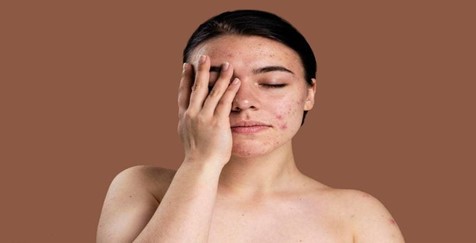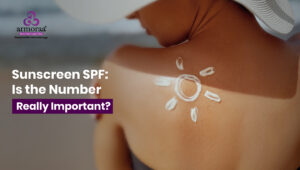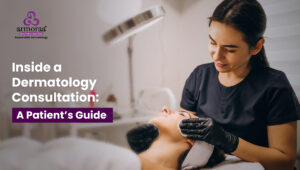Acne, by itself, can be highly frustrating. Unfortunately, even after active acne is controlled with oral and topical medications along with the right skincare products, we are left with their reminders in the form of acne scars. While post-acne hyperpigmentation (dark spots) or post inflammatory erythema (redness) can be treated topically, treating textured and depressed acne scars is challenging and require procedures.

What Causes Acne Scars?
Acne scars result from active inflammation in the dermis layer of the skin, secondary to an acne. As the acne heals, scars are formed during the healing process due to overproduction of growth factors in the area where the acne once was. While most acne will heal without leaving a permanent scar, cystic acne leaves behind a scar due to significant inflammation and damage to the dermis associated with them. The severity of scarring can depend on various factors such as genetic, frequent picking of the acne (increases damage, thereby inflammation and disrupts healing process), and hormonal status.
Types of Acne Scars
There are two main categories of acne scars:
- Atrophic Scars: These scars are sunken into the skin and include:
- Ice-pick scars: Small, deep pits in the skin.
- Boxcar scars: Wide, U-shaped scars with sharp edges.
- Rolling scars: Wavy and uneven depressions in the skin.
- Elevated Scars: These are raised scars, such as:
- Hypertrophic scars: Thick, raised scars that stay within the boundary of the original acne lesion.
- Keloidal scars: Similar to hypertrophic scars but extend beyond the original acne site.
Who Needs Treatment?

Is scar treatment for everyone? No. You should consider it if you answer “yes” to these questions:
- Do my scars lower my self-confidence and affect my academic performance?
- Am I less outgoing and social than I was before I got acne scars?
- Do I constantly wish my scars would disappear?
If so, consult a board-certified dermatologist for treatment options. They will evaluate active acne, scar type, severity, age, and skin tone to create a tailored treatment plan. If you have active acne, they will prioritize anti-acne treatment first to reduce inflammation and prevent new scars.
Treatment Options

There are several effective treatment options available depending on the type and severity of acne scars. Common treatments include:
- Chemical Peels: Designed to remove the top layers of the skin, reducing the appearance of scars.
- Microneedling: A procedure that uses tiny needles to stimulate collagen production and improve skin texture.
- Microneedling with Radiofrequency (MNRF): Combines traditional microneedling with radiofrequency energy to enhance collagen production for more dramatic results.
- PRP (Platelet-Rich Plasma): A regenerative treatment using your own blood to heal and rejuvenate the skin.
- LASER Therapy: Ablative and non-ablative LASER treatments can smooth out acne scars.
- Subcision: A minor surgical procedure where a needle is inserted under the scar to release it from the underlying tissue.
- Dermal Fillers: Used to fill in deep scars, particularly boxcar or rolling scars.
- Intralesional Injections: Effective for reducing hypertrophic or keloidal scars.
Consult a dermatologist today to find the right treatment for Acne Scar and take the first step towards smoother, more confident skin!




